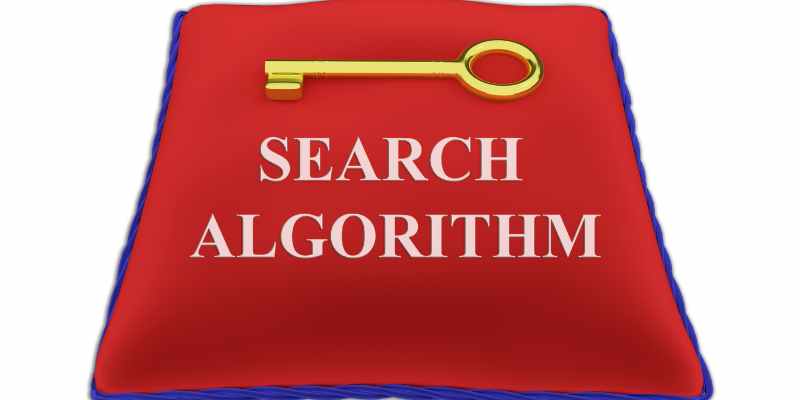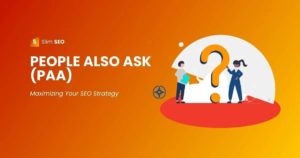As the digital world watches, AI is taking giant leaps.
From Siri to self-driving cars, artificial intelligence is revolutionizing industries.
With AI-driven tools like chatbots and predictive analysis flooding the market, many in our community are wondering, “Is SEO next on the chopping block?”
After all, 85% of customer interactions will be managed without a human by 2025.
The dance between AI and SEO isn’t just about algorithms and automation.
It’s about trust, relevancy, and value.
While AI excels in processing vast amounts of data at lightning speed, can it truly understand the nuanced, emotional triggers behind a search query?
As we venture into this discussion, we’ll unravel the intricacies of AI’s role in SEO.
This isn’t just a tech debate; it’s a deep dive into the future of digital marketing.
How will AI reshape the SEO landscape? And where does the human touch fit into this evolving narrative?
Buckle up. We’re about to explore the crossroads of innovation and intuition.
Understanding the Basics
AI, or artificial intelligence, isn’t just a buzzword. It’s a computer system’s ability to mimic human intelligence.
Think of it like this: Machines that can learn, reason, and even make decisions. With AI, we’ve seen feats like IBM’s Watson defeating human champions on Jeopardy and AlphaGo besting world-class Go players.
- SEO, Demystified: Now, let’s talk SEO, the bread and butter of the digital world. SEO stands for Search Engine Optimization. At its core? Three pillars.
- On-page SEO: This is all about content. Keywords, meta descriptions, and quality information that answers user queries.
- Off-page SEO: Think backlinks, external endorsements that boost your site’s credibility.
- Technical SEO: The behind-the-scenes magic. Site speed, mobile optimization, and sitemaps.
To give you some perspective, Google processes over 3.5 billion searches per day. SEO is the art (and science) of ensuring your content is the needle that stands out in this gargantuan haystack.
While AI is all about machines thinking like humans, SEO is about appealing to both machines (search engines) and humans (users).
Two worlds, interconnected, driving the digital age. Got it? Let’s dive deeper.
The Advancements of AI in SEO

We’re in an era where AI isn’t just a flashy add-on but a real game-changer in SEO.
- Chatbots: These aren’t your average chat windows. Powered by AI, chatbots are becoming the first line of customer interaction on websites. Why? They can handle queries 24/7, and according to a survey, 64% of respondents feel that 24-hour service is the best feature of chatbots.
- Automated Content Creation: Tools like GPT-3 can draft content that’s eerily human-like. Though not perfect, it’s a glimpse into a future where AI might assist in churning out basic content drafts.
- Predictive Analysis: AI can predict user behavior, allowing for tailored content strategies. For example, Netflix’s recommendation engine (while not strictly SEO) uses AI to analyze viewing patterns and recommend shows, accounting for 80% of the content watched on the platform.
AI’s SEO Superpowers
Here are the AI’s Superpowers that take your SEO game to next level:
- Efficiency: Say goodbye to hours of manual data crunching. AI can analyze vast data sets in a snap. This makes trend spotting and strategy adjustments lightning fast.
- Accuracy: AI minimizes human error. When it comes to data analysis, its precision is unparalleled, giving insights that are razor-sharp.
- Advanced Data Analysis: Beyond just numbers, AI can gauge sentiment, detect patterns, and even predict future trends. It’s like having a crystal ball, but backed by data.
To sum it up: AI in SEO is like giving a master artist a set of futuristic brushes. The art (SEO) remains the same, but the tools? They’re evolving, enhancing, and empowering the process. Stay tuned, because this is one exciting ride.
How AI is Changing the SEO Landscape?
Neil Patel here, once more diving into the marriage of AI and SEO. Ever wondered how search engines seem to read your mind these days? Let’s crack that code.
· Machine Learning and Search Algorithms

Self-Evolving Algorithms: Machine learning, a subset of AI, is now at the heart of search algorithms. Unlike traditional algorithms which followed preset patterns, these are dynamic.
They “learn” from user behavior. For instance, Google’s RankBrain observes how users interact with search results and tweaks rankings accordingly.
Sharper Keyword Interpretation: Gone are the days when SEO was about stuffing keywords. Machine learning analyzes context.
For example, if you search “apple” after browsing tech news, the engine might show results about Apple Inc., not the fruit.
· Voice Search’s Meteoric Rise
Speaking to Machines: With devices like Amazon Echo and Google Home, voice search is booming. Predictions say that by 2024, 50% of all searches could be voice searches.
AI is the linchpin here, deciphering human speech, understanding intent, and delivering accurate results.
Shift in Keyword Strategy: Voice searches are conversational. People don’t say, “Weather New York.” They ask, “What’s the weather like in New York today?”
SEO strategies need to capture these natural language queries.
· Personalization Through AI
Tailored User Experiences: AI tracks user preferences, behavior, and interaction patterns. Websites can now offer personalized content suggestions, making users feel the site was “made for them.”
Dynamic Content Adaptation: AI can dynamically adjust a site’s content layout based on user behavior. If a user frequently clicks on videos, for instance, AI might prioritize video content in their subsequent visits.
In essence, AI isn’t just changing the rules of the SEO game. It’s building an entirely new playing field, one where relevance, intent, and user-centricity reign supreme.
As we embrace AI, remember: It’s not about tricking machines but understanding humans better. And that, my friends, is where the future of SEO is headed.
Limitations of AI in SEO

We’ve sung praises about AI and SEO, but now, let’s dive into the areas where AI might hit a few roadblocks.
· The Human Touch – AI’s Achilles’ Heel
AI is impressive, but it can miss the subtle intricacies of human language. Sarcasm, irony, cultural references – these are often beyond the grasp of AI. For example, a phrase popular in one region might be unknown in another, yet carry profound meaning.
AI can’t fully grasp the depth of cultural nuances. An article about the “Big Apple” would mean Manhattan to a New Yorker, but AI might still think fruit if it hasn’t been sufficiently trained on local lingo.
· Ethical Concerns in the AI-SEO Realm
As AI analyses user behaviour, there’s a thin line between personalization and privacy invasion. With data breaches making headlines, 79% of consumers say they would take their business elsewhere if they knew a company mishandled their data.
Relying heavily on AI could lead to a content landscape that’s uniform and lacks diversity. If AI tools guide every content strategy, the unique flair and differentiation might wane.
· AI vs. Human Creativity
While tools like GPT-4 can draft content, there’s a difference between writing and storytelling. A machine might tell you facts about a sunset, but can it capture the emotion, the romance, the nostalgia?
Over-reliance on AI might stifle human creativity. If we lean too much on AI recommendations, we risk missing out on out-of-the-box ideas that AI might not deem ‘optimal.’
The Interplay: How SEO Professionals Can Leverage AI

Let’s dive into how these two can join forces to make magic.
Keyword Research on Steroids
With AI tools, keyword research isn’t just about volume and competition anymore. These tools can predict rising trends, sentiment around keywords, and even seasonal fluctuations. Imagine knowing a keyword will spike in interest three months from now.
AI can decode the web of related terms, phrases, and questions around your primary keyword. So, if you target “vegan recipes,” AI might suggest related searches like “dairy-free desserts” or “plant-based diets.”
Automation: Freeing the SEO Samurai for Bigger Battles
Tasks like data scraping, backlink monitoring, and basic reporting? Automate them. AI tools can handle these, saving hours.
With the nitty-gritty handled, SEO pros can focus on bigger strategic moves. Think content ideation, partnership opportunities, or user engagement tactics. Remember, strategy, not just tactics, wins the SEO game.
Decisions Backed by AI Insights
Making decisions based on intuition? That’s old school. With AI, get insights from vast data pools, ensuring your decisions are backed by hard facts. For instance, if an AI tool detects a decline in mobile site speed, you can prioritize mobile optimization before it impacts rankings.
AI doesn’t just tell you what happened; it forecasts what’s next. If a piece of content is gaining traction, AI can suggest amplifying it with paid ads or capitalizing on the trend with related content.
In essence, think of AI as the Iron Man suit for the SEO professional. You bring the brains, intuition, and strategy, while AI provides the tools, data, and efficiency. When leveraged correctly, this duo is nothing short of unstoppable. Let’s harness this power and lead the next wave of SEO evolution.
Predictions for the Future

Let’s pull out our crystal ball and glimpse into where AI and SEO might take us next.
AI: The Future Maestro of Search Algorithms
We’ve seen the beginnings with RankBrain, but that’s just the tip of the iceberg. AI will likely refine search algorithms in real-time, adapting instantly to user behavior and global trends.
Search results might soon be so tailored that two individuals searching the same term could get entirely different results based on their past behavior, preferences, and even mood analysis from their device interactions.
The Changing Face of the SEO Professional
With AI automating many routine tasks, the role of an SEO professional will pivot more towards strategy. Think big-picture planning, creative brainstorming, and understanding deep human psychology.
As AI tools churn out more complex datasets, there’ll be a growing demand for SEO experts who can decipher, analyze, and apply these insights. The lines between SEO specialists and data scientists might blur.
A Symbiotic Relationship – AI and SEO Pros:
AI will be the number-cruncher, the trend spotter, the automation tool. In contrast, the SEO professional will remain the decision-maker, the strategist, the human touchpoint. They’ll guide AI, fine-tune its outputs, and provide the human context machines might miss.
AI will evolve, and so must SEO pros. There’ll be a need for continuous upskilling, adapting to the latest AI tools, and understanding their potential and limitations.
In wrapping up, the future looks neither fully human nor entirely machine-driven. It’s a dance, a partnership. One where AI and SEO professionals complement each other, pushing boundaries and redefining what’s possible in the search realm. Fasten your seat belts; it’s going to be a thrilling ride!
Conclusion
The world of digital marketing is at a crossroads, where machine intelligence meets human creativity. AI, with its analytical prowess, is undeniably revolutionizing the mechanics of SEO.
It predicts, processes, and personalizes at lightning speed. But let’s be clear: it doesn’t diminish the role of the SEO professional. Instead, it amplifies it.
No machine can replicate the human understanding of nuance, culture, and emotion. While AI can crunch numbers and spot trends, it’s the human touch that crafts compelling narratives, understands complex motivations, and truly connects with audiences.
SEO pros, the future beckons! It’s not a world where you’re overshadowed by AI, but one where you harness its power. Embrace the advancements, upskill, and adapt. The SEO landscape is morphing, and with AI in your toolkit, the possibilities are endless.









